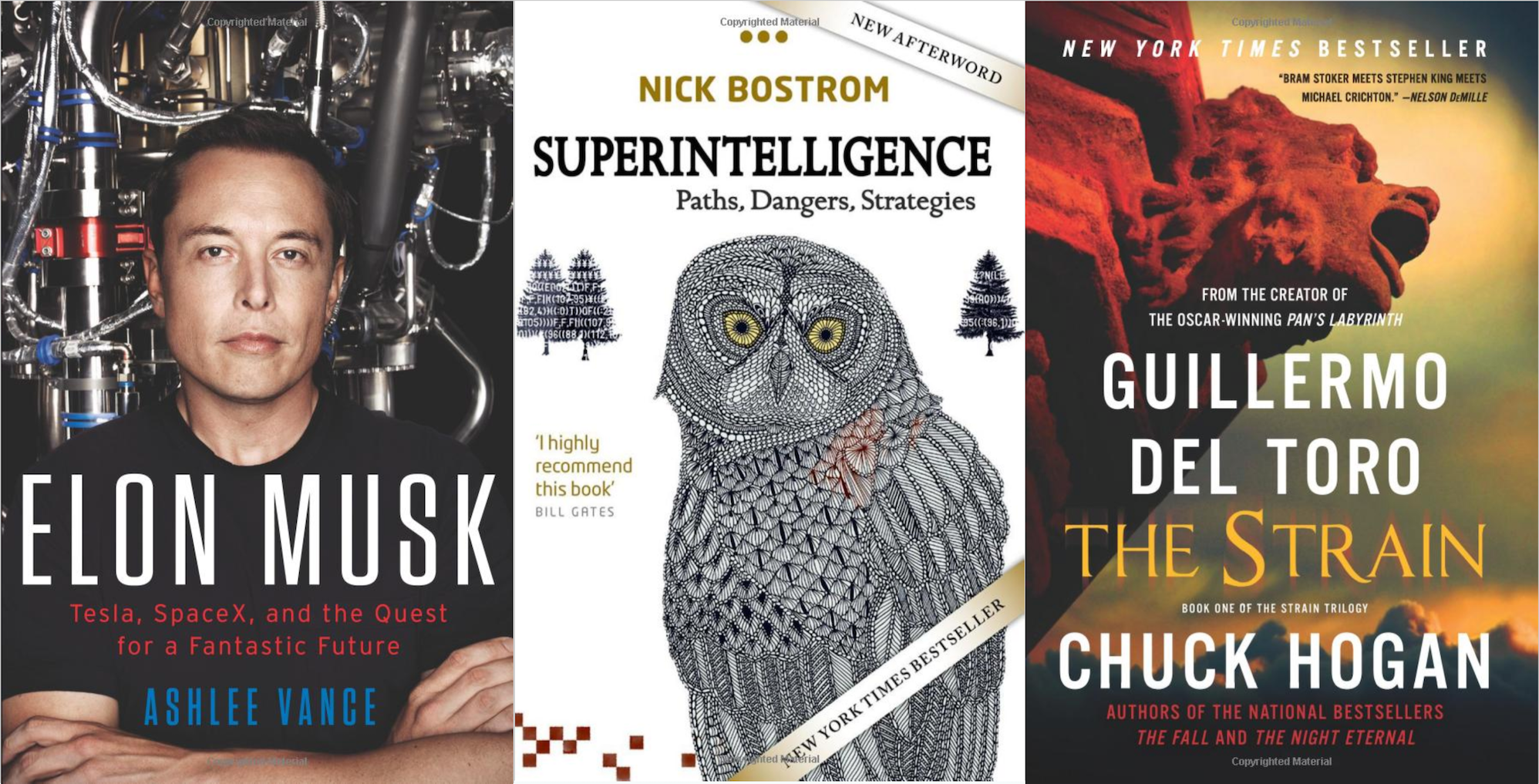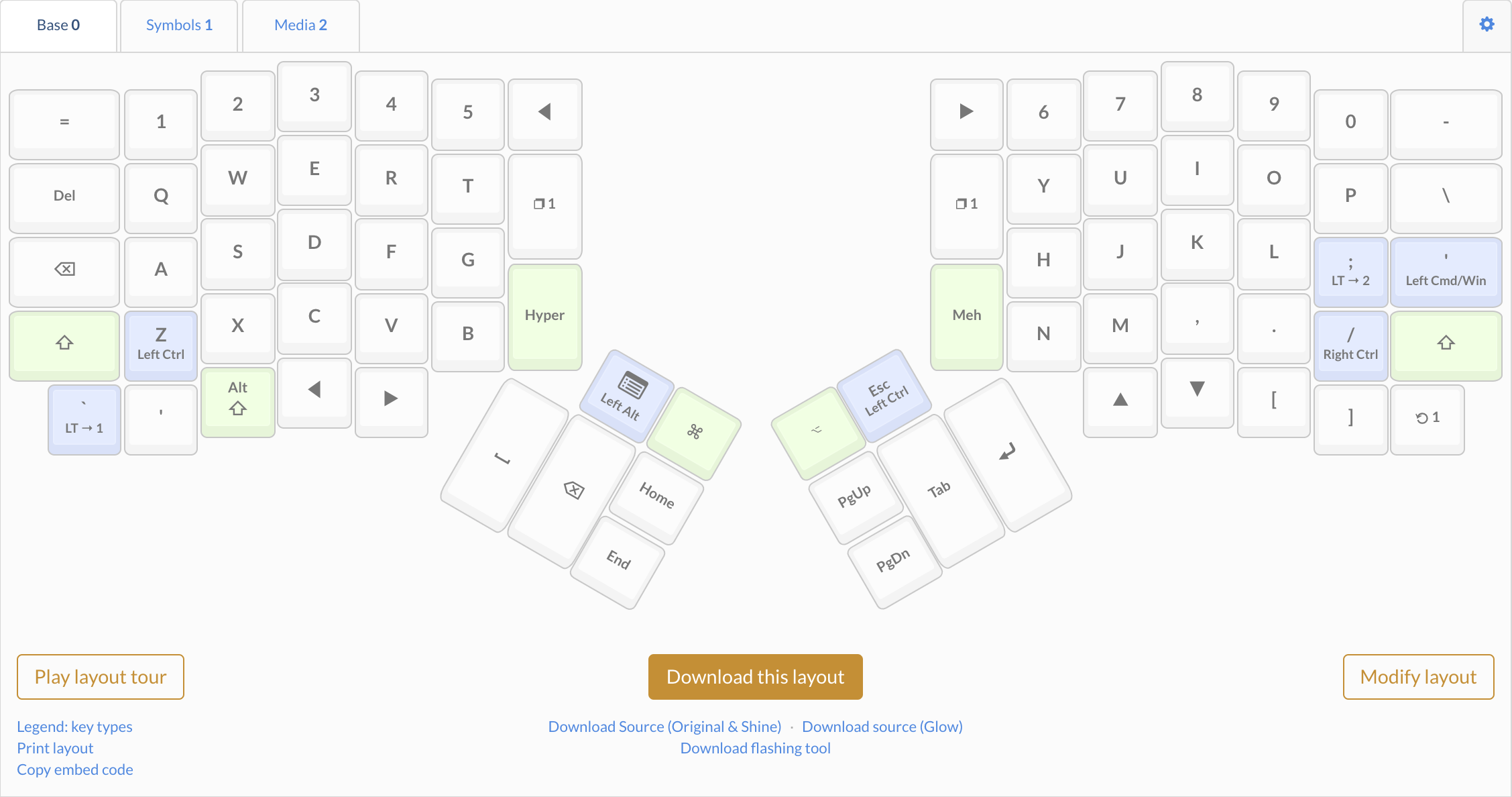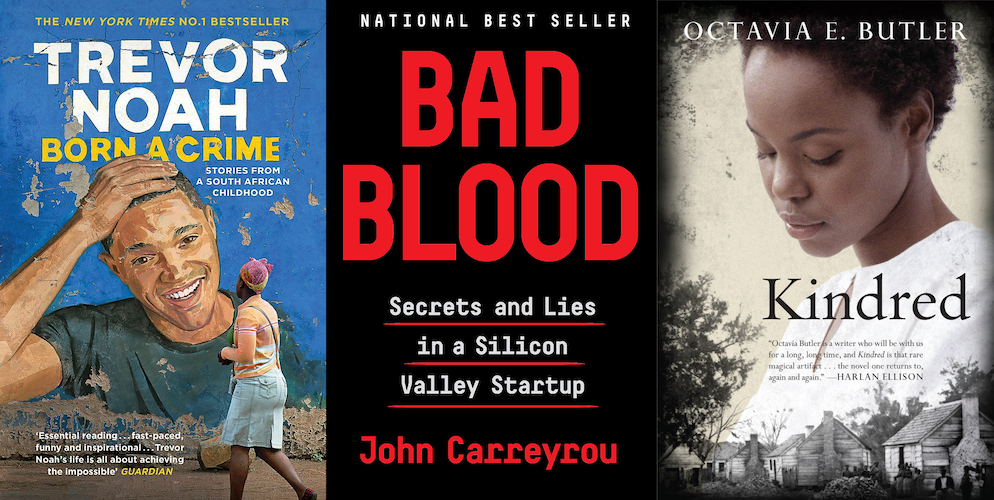In no particular order, here are the books I remember I’ve read this year. I’ll probably get through one or two more over the long break before 2016 hits, and I’ll update accordingly.
The Three Body Problem by Liu Cixin
An amazing hard sci-fi novel by one of the first famous Chinese sci-fi authors. We’ve made contact with a hostile alien nation. They’ve set course to invade earth in 400 years. Earth scrambles to begin the technological researcha and development to mount a defense. A mind bending narrative that takes geopolitical concepts and extends them to the galactopolitical(I just invented a new word there).
The Dark Forest by Liu Cixin
Book 2 of the Three Body Problem trilogy, and my new favorite book I’ve ever read! Basically continues the story of the first book. The first 1/3 of it is relatively dry, but the second half becomes amazing, with one of the most unexpected endings. Seriously can’t wait for the 3rd book’s English translation to come out. I’ve already imported the third book in Chinese, but I haven’t made much progress with it…
The Martian by Andy Weir
The book behind the popular new Matt Damon movie. Haven’t seen the movie yet, but the book was a hilarious and incredibly interesting hard sci-fi narrative of one man’s incredible dedication to stay alive and the whole earth’s scrambled attempts to help him. Highly recommended!
The prose isn’t particularly beautiful. In fact, there’s only maybe 2-5 pages in the entire book where the narrator has anything to say about the situation. It’s mostly just describing the hard facts about what’s going on. The content of what’s going on is just so amazing and filling, that there doesn’t really need to be any third person perspective to push it along.
Elon Musk: Tesla, SpaceX, and the Quest for a Fantastic Future by Ashlee Vance
The only biography out there so far about Elon Musk. It’d be pretty hard to mess this up since there’s so much interesting stuff to write about this guy. So my opinion is that it’s a great book. Lacks perhaps the finesse of Walter Isaacson’s biography of Steve Jobs.
Rabid, A Cultural History of the World’s Most Diabolical Virus by Monica Murphy and Bill Wasik
A book that caught my fancy in the bookstore. It had some interesting narratives and details, but it talked a lot more about cultural connections to Rabies (like how Rabies could have been the origin of Vampires, Werewolves, and more obviously, the Zombie), and I was looking for more grotesque scientific stories. An okay read, I admit I skimmed through quite a few boring sections.
I find myself strangely drawn to grotesque topics like this. Some other highly recommended epidemiological books:
- The Family That Couldn’t Sleep, by D.T. Max, investigation of Fatal Familial Insomnia which is a genetic disorder that strips away your brain’s ability to sleep, causing exhausting torment for weeks/months until you die.
- The Hot Zone by Richard Preston, riveting read about ebola!
- The Demon in the Freezer, also by Richard Preston, slightly less riveting read about smallpox.
Strangers Drowning by Larissa MacFarquhar
A book that describes ultra-altruists. People who devote their lives to third world humanitarian work, or who donate all their money to charity. It was mostly a descriptive narrative that didn’t add much analysis or attempt to come to many conclusions. It certainly caused you to pause and think about your relative selfishness compared to these saints.
From Zero to One by Peter Thiel
An okay book about how startups in Silicon Valley need to be creating entirely new business models to succeed, i.e. not simply shooting for incremental improvements, but shooting for massive exponential new ways of doing things. An okay read, but largely repeating what’s already the zeitgeist of Hacker News and what every Techie thinks in the valley.
Mere Christianity by C.S. Lewis
A reread of a book I read several years ago, but with a very different viewpoint. The first time I read it, I was totally uninterested in Christianity and merely curious. This time, I was seriously exploring it.
Truly a masterpiece that can appeal to both secular and Christian readers. He uses beautiful logic and poignant hypothetical scenarios that really drill down to the core of who we are as humans, and how that relates to faith.
The Screwtape Letters also by C.S. Lewis
A series of fictional letters written from an elder devil to a novice temptor about how to tempt humans. A mildly interesting fictional scenario that at times caused you to pause and think about subtle tempting influences in your life.
Superintelligence: Paths, Dangers, Strategies by Nick Bostrom
I got the idea to read this book because Elon Musk tweeted about it.
Riveting non-fiction and at times academic overview of the path to Superintelligence. You can read a funnier summary of this in this WaitButWhy post. But this goes into much more detail. It’s amazing how much academic thought people have already put into how to control a super artificial intelligence, when we’re nowhere near that technology (at least that’s what we think). If you’re mildly interested in technological trends, and where the future of humanity is going, you’ll find the topic of super AI to be incredibly mind opening. Take a look at the WaitbutWhy post, and if it pigues your interest, read Bostrom.
Walking With God Through Pain and Suffering by Timothy Keller
A somber work on why God allows suffering in this world, and an attempt to formulate a purpose for that suffering. The narrative weaves between true life suffering stories and theological/logical supportive arguments. A highly recommended work for any fellow sufferers.
I came across this book through a recommendation from a friend, Hilary Shui. She happens to now work for Mr. Keller’s church, hoping I may be lucky enough to get to meet him.
The Rape of Nanking by Iris Chiang
Riveting historical compilation of primary and secondary historical sources that weaves a bone-chilling narrative of what happened to China at the hands of the Japanese. A worthy read to elucidate the often forgotten war crimes of the East in WWII.
The Zombie Surival Guide by Max Brooks
I had high hopes for this book because his World War Z(book, not the mediocre film) was one of my favorite books. Unfortunately, it’s kinda just a rambling fictional advice book. Like… pack x, y, and z in your survival bag for when the zombie apocalypse hits. I honestly don’t know what I was expecting though, the book is pretty much what its title says.
Quiet, the Power of Introverts in a World That Can’t Stop Talking by Susan Cain
Got the idea for reading this from a quote from this book plastered on the wall in Google’s SF office. An amazingly relevant(to me) book that explains how introverts work on a different, and in some ways sublimely better way than extroverts in this world. It warmly invites introverts to use their strengths of focus, understanding, empathy, conciliation, and deep-thinking to achieve things better than extroverts can. It certainly isn’t an “anti-extrovert” book, more of a “let’s not marginalize introverts” type of book by suggesting that our world glorifies the outgoing extrovert and often makes introverts feel like they’re living in the wrong world. It certainly made me feel much more comfortable in my own skin after having read it. I would even say it has significantly changed my perspective on life.
The Strain, The Fall, The Night Eternal by Guillermo del Toro and Chuck Hogan
Three books in a trilogy that I was originally introduced to through the FX TV series. Relatively interesting thriller horror novels. Cool concept of “vampire zombies” basically, with an interesting twist to the vampire origin story. Worth a read if you’re into this genre. I was more interested in the beginning of the series rather than the mid-end. The beginning was a mix of horror, supernatural, and CSI science. It later became more vanila horror fiction. And things certainly became a lot less interesting once the mystery behind who/what the vampires are became revealed.
The Man in the High Castle by Phillip K. Dick
A cool alternative history where the Nazis and the Japanese won WWII. America was carved into two distinct colonies of the German and Japanese empires. I think it focused a bit too much on individuals and less on the more interesting geopolitical aspects of this scenario. Also made into an Amazin Prime Video series. An okay read.
In the Plex by Steven Levy
Figured it would be useful to read about the origin story of the company that’s currently paying my salary. Turned out to be an incredibly engrossing read that chronicled Google from it’s Stanford PHD dorm room days to now, as one of the most impactful companies in the world. The most interesting parts were when Google decided to stop, rethink, and disrupt traditional ways of doing things time and time again throughout its early formation, to radical success. And this was before disrupting things was so mainstream. It’s refreshing to learn about all these rebellious startup things that Google did now that Google is considered slow-moving in the Valley since it’s so big and old.
In Their Shoes by Grace Halsell
I think I read about Grace Halsell through some glowing mention of her in another book. And she certainly deserves a glowing mention. She basically decided in her middle life to leave her husband and suburbia to explore the world in the 1950s at a time when it was unheard of for women to explore the world alone. She did some crazy things:
- chemically alter her skin to black, and serve as a poor black housekeeper in the deep south
- live with the Navajo indians, and then take a bus to a city to serve as an indian housekeeper in a white home
- cross the border to Mexico, throw away her papers, and attempt to illegally recross back into the United States
She’s done some seriously cool stuff.
Anticipated Books of 2016
The Winds of Winter by George R. R. Martin
Seriously, when’s this thing gonna come out? We don’t even have a release date yet. I’m going to be at the midnight release and take a vacation day or two from work to read through this when it comes out.
Death’s End by Liu Cixin
Really can’t wait for the English translation to Liu Cixin’s 3rd book in the Three Body series. If I become especially impatient, I’ll try reading the Chinese version again…. very slow going.
UPDATE: I made it about 3 pages into the Chinese version. I guess I’ll have to wait until the English translation this coming September.


